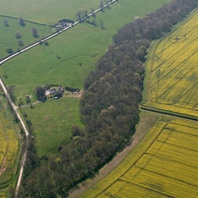
Viking Names
Beesby
Beesby, in the Bradley Haverstoe Wapentake of Lincolnshire, comes from a male personal name Besi and the Old Norse element by ‘a farmstead, a village’. The name Besi, which is recorded for Lincolnshire in Domesday Book, seems to be a Danelaw version of a Scandinavian name recorded in Old Danish as Bøsi. Today the name survives only in Beesby Farm and Beesby Hall, but remains of a deserted medieval village can be seen.
Read More
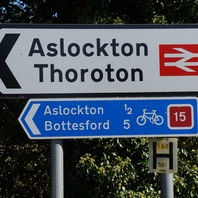
Viking Names
Thoroton
Thoroton, in the Bingham Wapentake of Nottinghamshire, comes from the Old Norse male personal name Þurferð and the Old English element tun ‘farm, settlement’. It is thus a hybrid name, like others nearby, such as Aslockton and Colston Bassett. The Thoroton Society, Nottinghamshire’s principal historical and archaeological society, takes its name from Dr Robert Thoroton who, in 1677, published the first history of the county. He in turn (or rather one of his ancestors) presumably took his name from the village.
Read More
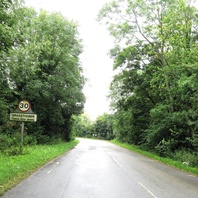
Viking Names
Grassthorpe
Grassthorpe in the Thurgarton Wapentake of Nottinghamshire is an Old Norse compound from gres ‘grass’ (which could also be Old English) and þorp ‘a secondary settlement, a dependent outlying farmstead or hamlet’.
Read More
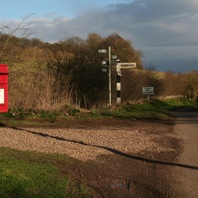
Viking Names
Skendleby
Skendleby, in the South Riding of Lindsey of Lincolnshire, is a name of uncertain origin. The first element is obscure, but is perhaps scenehelde ‘beautiful slope’ from Old English scene ‘bright, beautiful’ and helde ‘slope’. The second element of the place-name is Old Norse by ‘a farmstead, a village’.
Read More
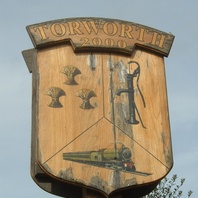
Viking Names
Torworth
Torworth, in the Bassetlaw Wapentake of Nottinghamshire, comes from the Old Norse male personal name Þórðr and the Old English element worð ‘enclosure’.
Read More
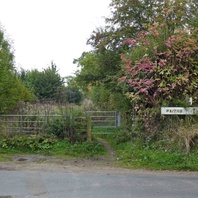
Viking Names
Waithe
Waithe, in the Haverstoe Wapentake of Lincolnshire, is thought to be originally derived from Old English (ge)wæd ‘a ford’. By the later twelfth century, the -d- was replaced by -th- either because of the Scandinavianization of the pronunciation, or by the replacement of (ge)wæd with its Old Norse cognate vað ‘a ford’. In both cases the meaning of the name is ‘at the ford’, which must be over Waithe Beck, where a minor road crosses the stream half a mile east of the church.
Read More
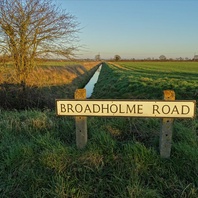
Viking Names
Broadholme
Broadholme, in the West Lindsey district of Lincolnshire, comes from the Old Norse male personal name Broddi and the Old Norse element holmr ‘an island, an inland promontory, raised ground in marsh, a river-meadow’. Hence, ‘Broddi’s island’. Historically, the parish belonged to Newark Wapentake, Nottinghamshire, but was transferred to West Lindsey in 1986 by the Local Government Boundary Commission.
Read More

Viking Names
Sookholme
Sookholme, in the Bassetlaw Wapentake of Nottinghamshire, lies in a river valley and the etymology of the name reflects its location. The first element is Old English sulh ‘a plough; a ploughland (i.e. the amount of land which can be cultivated with one plough)’ which is combined with the second element, Old Norse holmr ‘an island, an inland promontory, raised ground in marsh, a river-meadow’. Thus it is a hybrid name with the probable meaning of ‘gully island’.
Read More
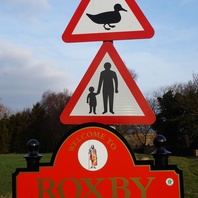
Viking Names
Roxby
Roxby, in the West Riding of Lindsey in Lincolnshire, comes from the Old Norse male name Hrókr and the Old Norse element by ‘farmstead, a village’. Roxby is a joint parish with Risby.
Read More

Viking Names
Kirkby Green
Kirkby Green, in the Langoe Wapentake of Lincolnshire, comes from the Old Norse appellative compound kirkju-by ‘a village with a church’. The affix Green come from Old English grene ‘grassy spot, a village green’
Read More
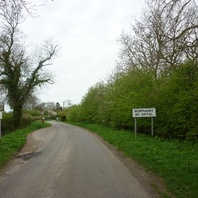
Viking Names
Normanby by Spital
Normanby by Spital, in the Aslacoe Wapentake of Lincolnshire, takes its name from the Old English ethnonym Norðman ‘Northman, Norwegian’ and the Old Norse element bý ‘a farmstead, a village’. A Domesday form of the name, Normanestouu, has as the second element Old English stow ‘a place, a place of assembly’, but this form is not supported by later recordings. The suffix Spital is for its proximity to Spittal in the Street, ‘hospital on a Roman road (Ermine Street)’. Traditionally, the place-name has been interpreted as referring to a settlement of Norwegians (in an area where most of the Scandinavian settlers were Danes). However, the exact implications of such a name are not yet fully understood and are the subject of ongoing work by Dr Jayne Carroll of the Institute for Name-Studies, University of Nottingham. There are other Normanbys in Lincolnshire, Normanby in Burton upon Stather and Normanby by Stow.
